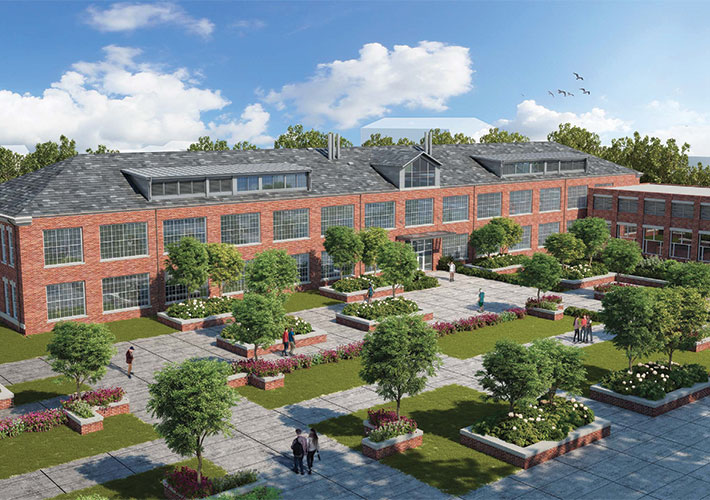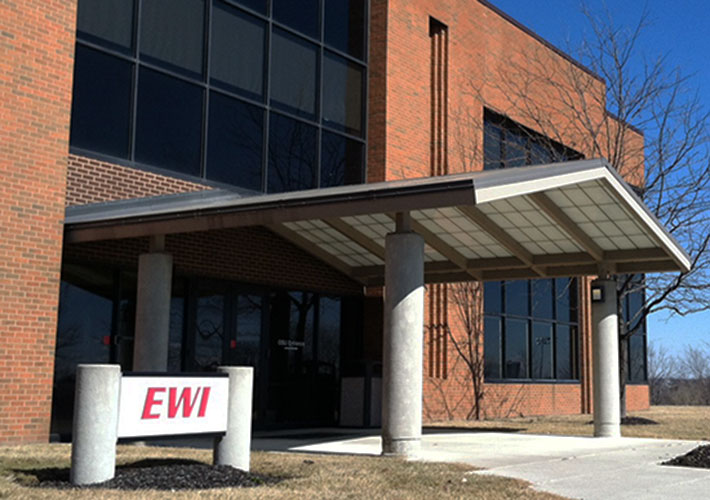Our Partners

Auburn University’s National Center for Additive Manufacturing Excellence has partnered with NASA with an aim to advance fundamental and applied additive manufacturing research through public and private partnerships and to contribute to workforce development. NCAME is a partner in the ASTM International Additive Manufacturing Center of Excellence.
“Our goal is to establish NCAME to be the go-to place for research and development, training and education, and for standardization and certification for additive manufacturing,” says Nima Shamsaei, Ph.D., NCAME director, and an ASTM member.
The Gavin Engineering Research Laboratory, now in the final stages of an $18 million renovation, will serve as the new home of NCAME. It is set to open by the fall 2018 semester.
NCAME has a reach that extends far beyond research and development. The team thrives on interdisciplinary cooperation and faculty from all engineering disciplines. The center has developed multidisciplinary campus-wide partnerships with the Harbert College of Business, the Harrison School of Pharmacy, the College of Architecture, Design, and Construction, and the College of Veterinary Medicine, where the aim is to develop additive-engineered implants with drug delivery systems for animals and, eventually, humans.

NASA’s Marshall Space Flight Center’s capabilities and experience are essential to nearly every facet of NASA’s mission of space exploration and discovery. Marshall is one of NASA’s largest field installations, with an annual budget of approximately $2.5 billion and approximately 6,000 service and contractor employees, including those at NASA’s Michoud Assembly Facility in New Orleans, Louisiana. Since Marshall Space Flight Center’s establishment in 1960, its engineers, researchers, and scientists have always played a critical role in human space exploration.
Marshall teams pioneered the design of rocket engines, launch vehicles, space systems, science instruments, and payloads that make possible unprecedented human and robotic missions. Today, Marshall is essential to ensuring the United States can send humans beyond Earth’s orbit and into deep space on bold new missions of space exploration with the Space Launch System, the most powerful rocket ever built to propel human explorers and cargo and science payloads farther into space than ever before, including back to the moon and ultimately to Mars.
Technology created and advanced by Marshall engineers, scientists, and researchers is diverse, ranging from new developments in the areas of space transportation and propulsion to key breakthroughs in space systems and science research. Marshall engineers often leverage breakthrough technologies for multiple purposes.
For example, Marshall is pioneering unique advanced and additive manufacturing methodologies to speed development schedules and create more affordable parts for everything from rocket engines to life support systems, and for the in-space fabrication of parts and tools needed on long-duration missions that cannot be resupplied from Earth.

EWI is a leading engineering and technology service provider that helps companies enhance their production
and competitiveness through the development and implementation of advanced manufacturing technologies. Since 1984, EWI’s work has empowered industry leaders to overcome complex challenges and seamlessly integrate new processes to bring products to market more quickly and efficiently.
The EWI team applies a cross-disciplinary, vendor-neutral, process-based approach to help companies identify, develop, and implement technology solutions in a rapidly advancing industrial landscape. It is the only independent engineering consultancy in the United States with comprehensive labs and technology resources specifically dedicated to production process development and improvement. EWI’s advanced manufacturing capabilities include materials joining, additive manufacturing, metals forming, testing and characterization, nondestructive evaluation. and advanced automation.
EWI works across all industrial sectors including, but not limited to, aerospace, automotive, consumer electronic, medical, advanced energy, oil and gas, government and defense, packaging, and heavy manufacturing. By combining this broad industry experience with deep technical expertise, EWI is able to serve as an integral extension of its clients’ innovation and R&D teams.
As an active participant in the COE’s research activities, EWI will draw on its full suite of staff and laboratory resources as well as its deep relationships across industry sectors to form several COE consortia. Under EWI’s direction, these working groups will ensure that new standards are collaboratively developed and widely accepted among researchers, manufacturers, and regulators. Consortia members will include representatives from a variety of industries and institutions with extensive experience in AM materials and processes. They will help guide the direction of the COE’s research to meet industry needs and validate standards.

The Manufacturing Technology Centre aims to inspire manufacturing globally by developing innovative manufacturing technologies and processes in partnership with industry, academia, and other institutions.
Founded in 2010, the MTC has some of the most advanced manufacturing equipment in the world, enabling it to provide a specialized environment for the development and demonstration of innovation to be used on an industrial scale.
A leading proponent of the digitalization of the manufacturing industry and home to the National Centre for Additive Manufacturing, the MTC has expertise across a range of technologies. The MTC works collaboratively with companies of all sizes from start-ups to global corporations in diverse industry sectors including aerospace, marine, defense, construction, and food and drink.
It is also home to the European Space Agency’s Additive Manufacturing Benchmarking Centre.
The MTC has more than 100 industrial members who play an active role in steering the organization’s technological path. The membership scheme promotes long-term relationships, but the MTC works with any company seeking a manufacturing solution.
 SN Home
SN Home Archive
Archive Advertisers
Advertisers Masthead
Masthead RateCard
RateCard Subscribe
Subscribe Email Editor
Email Editor